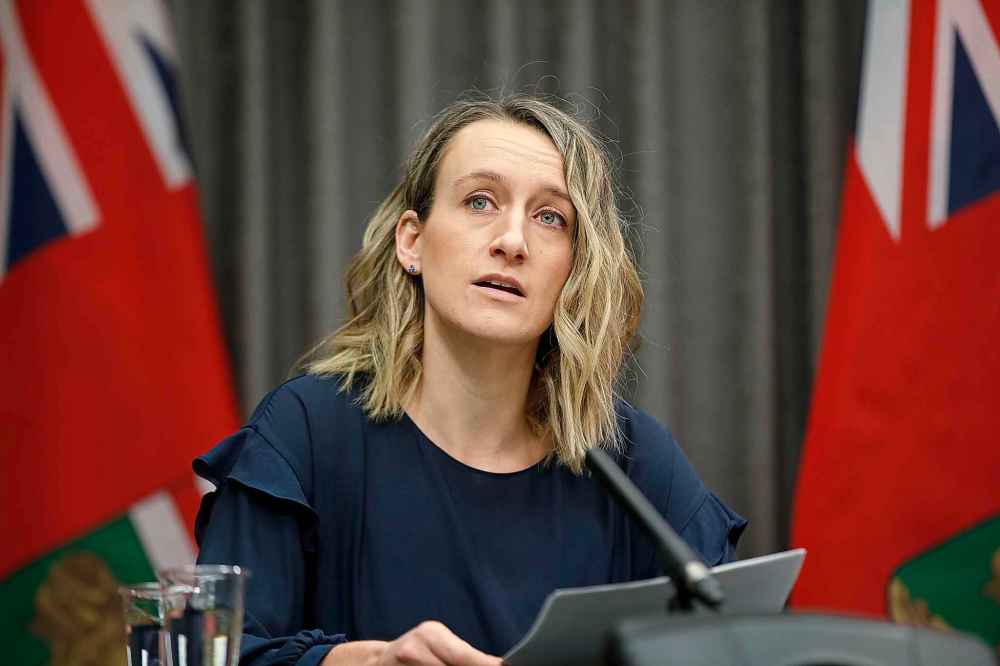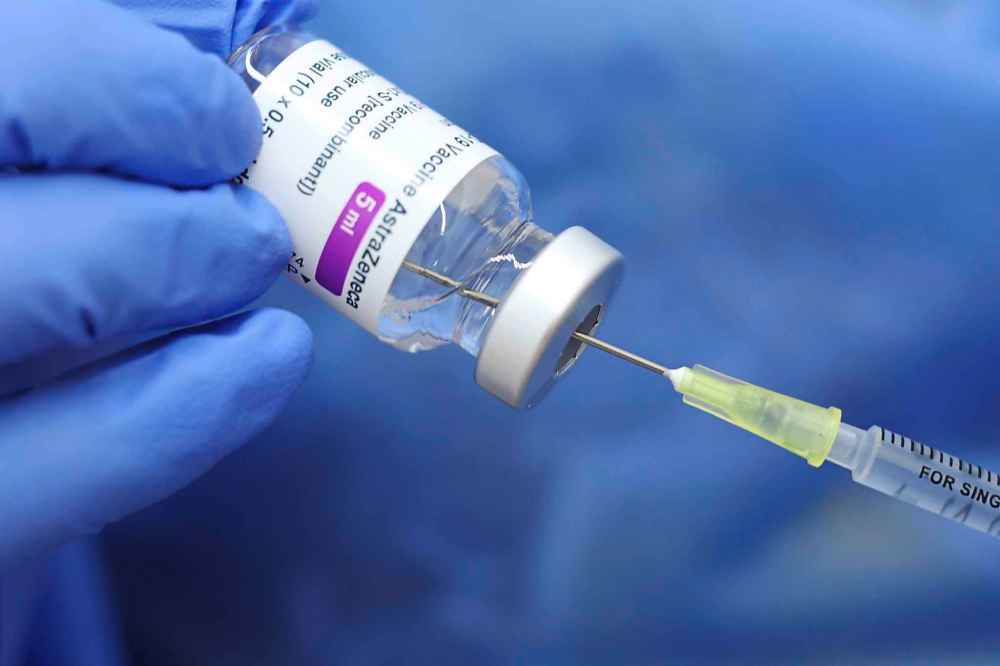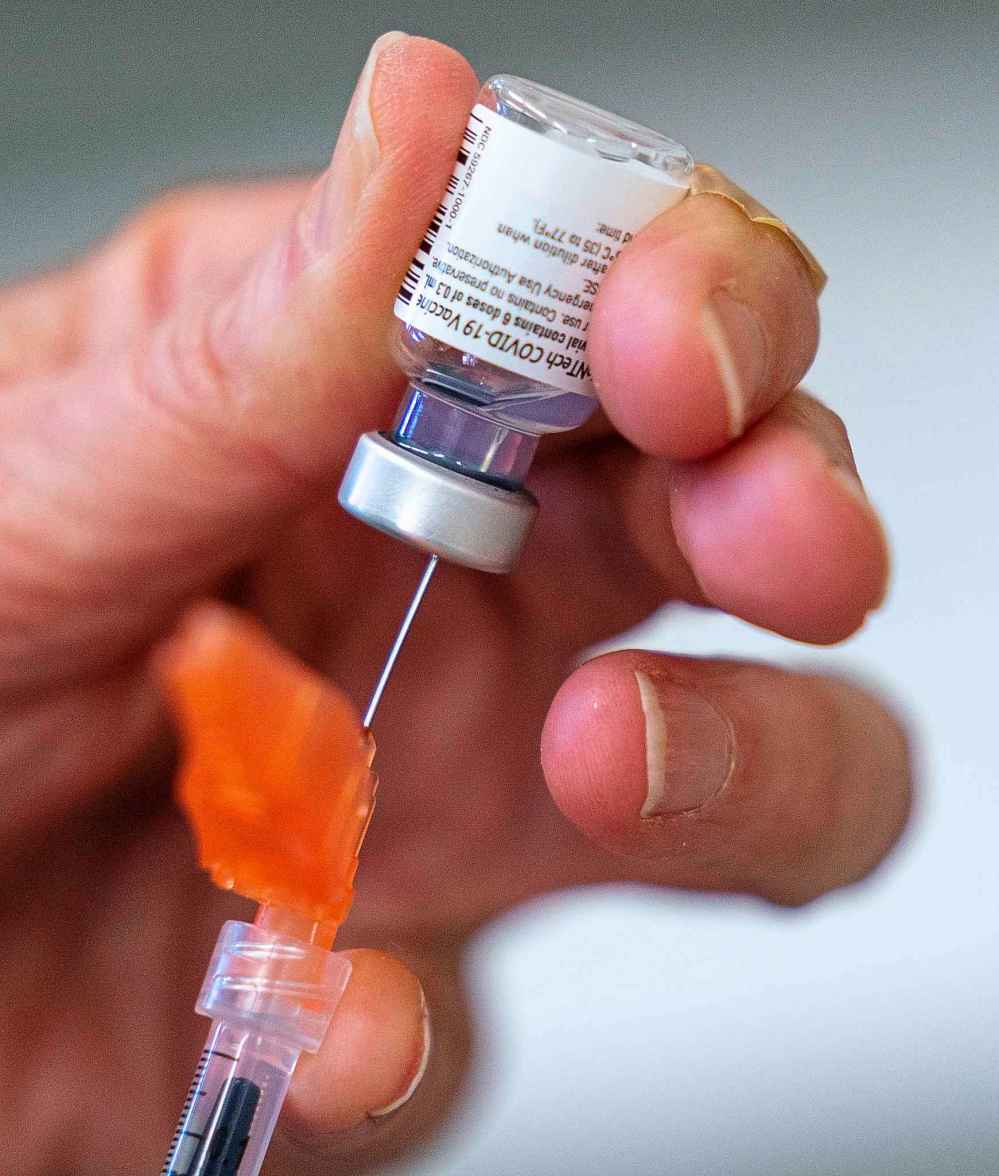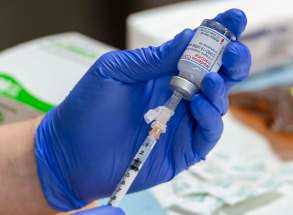The enduring, maddening problem of vaccine hesitancy
Read this article for free:
or
Already have an account? Log in here »
To continue reading, please subscribe:
Monthly Digital Subscription
$0 for the first 4 weeks*
- Enjoy unlimited reading on winnipegfreepress.com
- Read the E-Edition, our digital replica newspaper
- Access News Break, our award-winning app
- Play interactive puzzles
*No charge for 4 weeks then price increases to the regular rate of $19.00 plus GST every four weeks. Offer available to new and qualified returning subscribers only. Cancel any time.
Monthly Digital Subscription
$4.75/week*
- Enjoy unlimited reading on winnipegfreepress.com
- Read the E-Edition, our digital replica newspaper
- Access News Break, our award-winning app
- Play interactive puzzles
*Billed as $19 plus GST every four weeks. Cancel any time.
To continue reading, please subscribe:
Add Free Press access to your Brandon Sun subscription for only an additional
$1 for the first 4 weeks*
*Your next subscription payment will increase by $1.00 and you will be charged $16.99 plus GST for four weeks. After four weeks, your payment will increase to $23.99 plus GST every four weeks.
Read unlimited articles for free today:
or
Already have an account? Log in here »
Hey there, time traveller!
This article was published 14/04/2021 (1708 days ago), so information in it may no longer be current.
“The benefits outweigh the risks.”
There was no official count for the number of times that Dr. Joss Reimer, the medical lead for Manitoba’s vaccine task force, used that phrase on Wednesday. But for anyone listening to her update, it fell into the statistical category of “a lot.”
Why Reimer and other Manitoba officials utter that phrase is no mystery. They are concerned about vaccine hesitancy stalling the province’s efforts to create herd immunity and stop the coronavirus in its tracks.
Still, there hasn’t been much evidence vaccine hesitancy has taken root in Manitoba. But Reimer’s refrain about how vaccine benefits outweigh the risks certainly makes you wonder whether that is about to change.

Public health officials have always acknowledged there would be some degree of hesitancy. Recent surveys in this country suggest that at least 20 per cent of the population may decline to be immunized, for a variety of reasons.
Some do not trust vaccines. Others don’t trust the health-care system. Still others are wary of anything a government really wants them to do.
Even so, the thinking was that as more people were vaccinated and started to enjoy more normal lives, and with a relentless public education campaign, hesitancy would ease and we’d reach the herd immunity threshold.
And then, AstraZeneca happened.
With the problems it experienced during clinical trials, the AstraZeneca vaccine has been somehow portrayed as a poor cousin to Pfizer and Moderna, the most prevalent vaccines on the market — even though AstraZeneca is easier to handle.
However, after several weeks of anecdotal evidence, the European Union’s drug oversight agency confirmed earlier this month it had found a connection between AstraZeneca and a rare form of blood clotting. European Medicines Agency also said the risk of catching and dying from COVID-19 was “much greater” than getting blood clots from a vaccine.

That verdict was endorsed by Health Canada following an analysis of extensive data from the United Kingdom, where 20 million AstraZeneca doses have been administered. Dr. Supriya Sharma, Health Canada’s chief medical adviser, said that not only was the AstraZeneca vaccine safe, she noted the risk of blood clotting was “much, much, much higher” from developing COVID-19.
Sharma told reporters the risk of developing clots from the AstraZeneca vaccine was about 1 in 250,000. However, the risk of developing blood clots from the coronavirus was much higher, particularly for women between the age of 15 and 45 (1 in 3,300), women on birth control (1 in 1,600) or pregnant women (1 in 300).
Relying on the evidence, the benefits of AstraZeneca and all other vaccines most definitely outweigh the risks which, when they exist, are incredibly low. In a perfect world, that would be enough to convince people to just get on with the business of getting vaccinated.
We’re all aware, however, that this is hardly a perfect world.

Despite pleadings and the urgent dissemination of epidemiological data, panic is setting in. The same day Reimer was trying to calm fears here in Manitoba, Denmark decided to abandon the AstraZeneca vaccine altogether, becoming the first European Union state to take such action.
Denmark’s response is an excellent example of how fragile human nature can be in the face of a crisis. No matter how much data you throw at people (or nation states, for that matter), there are always going to be instances where people ignore evidence and go with their gut.
Other countries have paused administration of AstraZeneca vaccine, and some have even limited its use to people over 50 years of age. However, in this instance, Denmark’s total rejection of AstraZeneca could have far-reaching implications for the global vaccination effort.
Already, there are concerns in developing countries that are more reliant on AstraZeneca and other vaccines such as the one produced by Johnson & Johnson (which is the same kind of vaccine and also the subject of blood clot concerns) because richer countries monopolized supplies of Pfizer and Moderna.
This has sparked concern in developing countries that they can only acquire the vaccines rejected by wealthier nations, a perception that could discourage many in poorer countries from getting vaccinated. And when you’re in a global pandemic, that is a problem for everyone regardless of where they live.
We as individuals have the same potential to undermine the global vaccination effort. We all share a common need to have as many people vaccinated, as quickly as possible, to stop COVID-19 before it mutates into a form that cannot be controlled by current vaccines.
But the longer we wait to get vaccinated, and the greater the number of people who defer or decline, the greater the risk to all of us — even those who have been vaccinated.
The pandemic has been the test of a lifetime for most of us.
It has tested our ability to follow simple health and safety rules, and our resilience in the face of a crisis.
Now, it is testing our capacity to sort fact from fiction about COVID-19 vaccines. Particularly, the fact that the benefits most definitely outweigh the risks.
dan.lett@freepress.mb.ca

Born and raised in and around Toronto, Dan Lett came to Winnipeg in 1986, less than a year out of journalism school with a lifelong dream to be a newspaper reporter.
Our newsroom depends on a growing audience of readers to power our journalism. If you are not a paid reader, please consider becoming a subscriber.
Our newsroom depends on its audience of readers to power our journalism. Thank you for your support.







